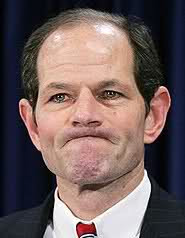By John Ray (M.A.; Ph.D.)
Churchill was a much more complex character than people generally realize and, as I have pointed out before (See also below), he was a centrist conservative like GWB and Disraeli rather than an unqualified supporter of laissez faire. This complexity has led to a number of hostile re-evaluations of him both from libertarians and from the Left. Two of the libertarian evaluations are here and here. A very common accusation that one often hears is that Churchill was an antisemite and a Fascist. Below are some of the quotes that are sometimes given in support of that claim. The first is from the Illustrated Sunday Herald - 8th February 1920:
“The part played in the creation of Bolshevism and in the actual bringing about of the Russian Revolution by these international and for the most part atheistic Jews ... is certainly a very great one; it probably outweighs all others. With the notable exception of Lenin, the majority of the leading figures are Jews. Moreover, the principal inspiration and driving power comes from Jewish leaders ... The same evil prominence was obtained by Jews in (Hungary and Germany, especially Bavaria).
Although in all these countries there are many non-Jews every whit as bad as the worst of the Jewish revolutionaries, the part played by the latter in proportion to their numbers in the population is astonishing. The fact that in many cases Jewish interests and Jewish places of worship are excepted by the Bolsheviks from their universal hostility has tended more and more to associate the Jewish race in Russia with the villainies which are now being perpetrated”.
The most important thing to note about this quote is its date. Like Ronald Reagan and many others, Churchill moved from Left to Right during his lifetime and the above quote was uttered while he was a member of a LIBERAL government led by Lloyd George. And below is part of what Lloyd George said about Hitler at a much later date (Daily Express, 17.9.1936):
“I have now seen the famous German leader and also something of the great change he has effected. “Whatever one may think of his methods - and they are certainly not those of a parliamentary country, there can be no doubt that he has achieved a marvelous transformation in the spirit of the people, in their attitude towards each other, and in their social and economic outlook…
It is not the Germany of the first decade that followed the war - broken, dejected and bowed down with a sense of apprehension and impotence. It is now full of hope and confidence, and of a renewed sense of determination to lead its own life without interference from any influence outside its own frontiers.
There is for the first time since the war a general sense of security. The people are more cheerful. There is a greater sense of general gaiety of spirit throughout the land. It is a happier Germany. I saw it everywhere, and Englishmen I met during my trip and who knew Germany well were very impressed with the change.
One man has accomplished this miracle. He is a born leader of men. A magnetic and dynamic personality with a single-minded purpose, as resolute will and a dauntless heart.”
An admiration that Churchill echoed:
“While all those formidable transformations were occurring in Europe, Corporal Hitler was fighting his long, wearing battle for the German heart. The story of that struggle cannot be read without admiration for the courage, the perseverance, and the vital force which enabled him to challenge, defy, conciliate, or overcome, all the authorities or resistance’s which barred his path. He, and the ever increasing legions who worked with him, certainly showed at this time, in their patriotic ardour and love of country, that there was nothing that they would not dare, no sacrifice of life, limb or liberty that they would not make themselves or inflict upon their opponents.”
And speaking in Rome on 20 January, 1927, Churchill praised Mussolini:
“I could not help being charmed, like so many other people have been, by Signor Mussolini’s gentle and simple bearing and by his calm, detached poise in spite of so many burdens and dangers. Secondly, anyone could see that he thought of nothing but the lasting good, as he understood it, of the Italian people, and that no lesser interest was of the slightest consequence to him. If I had been an Italian I am sure that I should have been whole-heartedly with you from the start to finish in your triumphant struggle against the bestial appetites and passions of Leninism. I will, however, say a word on an international aspect of fascism. Externally, your movement has rendered service to the whole world. The great fear which has always beset every democratic leader or a working class leader has been that of being undermined by someone more extreme than he. Italy has shown that there is a way of fighting the subversive forces which can rally the masses of the people, properly led, to value and wish to defend the honour and stability of civilised society. She has provided the necessary antidote to the Russian poison. Hereafter no great nation will be unprovided with an ultimate means of protection against the cancerous growth of Bolshevism.”
And I don’t suppose I need to remind people that FDR also praised Mussolini—referring to him as “that admirable Italian gentleman” and adopting part of Mussolini’s ideas for his “New Deal”
In summary, then, Churchill’s comments about the Jews (and Jews WERE prominent among the Bolsheviks) belong to his most Leftist period and his admiration of the achievements of Hitler and Mussolini were widely shared in the interwar period and were very much what one would have expected of ANY centrist politician (Left or Right) at the time.
Dan Mandel goes into these matters in much more depth.
In case it goes offline, I also reproduce below my post about Churchill's conservatism:
Winston Churchill: The original “compassionate conservative”
Perhaps I have missed it but I have not seen any comparisons between GWB and Winston Churchill. Yet their policies and views are strikingly similar. Note the following speech by Churchill to the Conservative Party Conference, on 5 October 1946 (From The Sinews of Peace, ed. Randolph S. Churchill, London, 1948, p. 213-215). I have highlighted a few points in red:-
“It certainly would be an error of the first order for us to plunge out into a programme of promises and bribes in the hopes of winning the public favour. But if you say to me: `What account are we to give of the policy of the Conservative Party? What are we to say of our theme and our cause and of the faith that is in us?’ That is a question to which immediate answer can always be given.
Our main objectives are: To uphold the Christian Religion and resist all attacks upon it. To defend our Monarchical and Parliamentary Constitution. To provide adequate security against external aggression and safety for our seaborne trade. To uphold law and order, and impartial justice administered by courts free from interference or pressure on the part of the executive. To regain a sound finance and strict supervision of national income and expenditure. To defend and develop our empire trade, without which Great Britain would perish. To promote all measures to improve the health and social conditions of the people. To support as a general rule free enterprise and initiative against State trading and nationalisation of industries.
To this I will add some further conceptions. We oppose the establishment of a Socialist State, controlling the means of production, distribution and exchange. We are asked, ‘What is your alternative?’ Our Conservative aim is to build a property-owning democracy, both independent and interdependent. In this I include profit-sharing schemes in suitable industries and intimate consultation between employers and wage-earners. In fact we seek so far as possible to make the status of the wage-earner that of a partner rather than of an irresponsible employee. It is in the interest of the wage-earner to have many other alternatives open to him than service under one all-powerful employer called the State. He will be in a better position to bargain collectively and production will be more abundant; there will be more for all and more freedom for all when the wage-earner is able, in the large majority of cases, to choose and change his work, and to deal with a private employer who, like himself, is dependent upon his personal thrift, ingenuity and good-housekeeping. In this way alone can the traditional virtues of the British character be preserved. We do not wish the people of this ancient island reduced to a mass of State-directed proletariats, thrown hither and thither, housed here and there, by an aristocracy of privileged officials or privileged party, sectarian or Trade Union bosses. We are opposed to the tyranny and victimisation of the closed shop. Our ideal is the consenting union of million, of free, independent families and homes to gain their livelihood and to serve true British glory and world peace.
Freedom of enterprise and freedom of service are not possible without elaborate systems of safeguards against failure, accident or misfortune. We do not seek to pull down improvidently all structures of society, but to erect balustrades upon the stairway of life, which will prevent helpless or foolish people from falling into the abyss. Both the Conservative and Liberal Parties have made notable contributions to secure minimum standards of life and labour. I too have borne my part in this. It is 38 years ago since I introduced the first Unemployment Insurance scheme, and 22 years ago since, as Conservative Chancellor of the Exchequer, I shaped and carried the Widows’ Pensions and reduction of the Old Age Pensions from 70 to 65 - We are now moving forward into another vast scheme of national insurance which arose, even in the stress of war, from a Parliament with a great Conservative majority. It is an essential principle of Conservative, Unionist, and Tory policy - call it what you will - to defend the general public against abuses by monopolies and against restraints on trade and enterprise, whether these evils come from private corporations, from the mischievous plans of doctrinaire Governments, or from the incompetence and arbitrariness of departments of State. Finally, we declare ourselves the unsleeping opponents of all class, all official or all party privilege, which denies the genius of our island race, whose sparks fly upwards unceasingly from the whole people, its rightful career reward and pre-eminence alike in peace and war.”
FINIS











2 comments:
I don't care what they say. I think he was one of the best and greatest PM's England has ever had, except for Margaret. :)
Thanks for stopping over.
Very interesting post. He's one of my heroes. Wasn't it he who said, 'If you are not a Liberal when you're young, you have no heart. If you're not a Conservative by the age of 30, then you have no brain!'?
Off topic: Have you switched to the new template yet? I switched to the new template and I just cannot get only the trackback like I have on my other sites. If you know how to do that, I would be extremely grateful. :)
Thank you for stopping by my site. Have a wonderful day.
Post a Comment